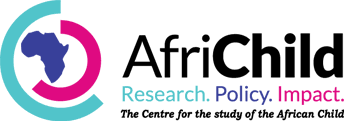The global COVID-19 pandemic has impacted the way we live and
work, but most critically it amplified the vulnerabilities of children and
inequities that are inherent within our communities. The government-
imposed strict prevention measures impacted the livelihoods of many
working people, hindered access to essential services like healthcare
and education. Over 15 million children in Uganda were out of school
without the protection net that schools provide.
The global COVID-19 pandemic has impacted the way we live and
work, but most critically it amplified the vulnerabilities of children and
inequities that are inherent within our communities. The government-
imposed strict prevention measures impacted the livelihoods of many
working people, hindered access to essential services like healthcare
and education. Over 15 million children in Uganda were out of school
without the protection net that schools provide.
Anecdotal and media reports in Uganda suggest that the confinement
of the population at home and in their communities resulted in a sharp
rise in cases of domestic violence, child abuse, teenage pregnancy,
sexual exploitation, child labour among others. This put into sharp focus
the work of institutions like AfriChild and the need for strategies to
ensure child protection amidst not only the global COVID-19 pandemic,
but also the hidden crisis of child abuse escalated by the pandemic.
The AfriChild Centre is committed to generation of research evidence
to ensure relevant policies for children in Africa. The COVID-19 pandemic
and the subsequent government lock-down response is unprecedented.
This situation demanded empirical evidence to provide a basis for
informed action. In line with its mission, the AfriChild Centre conducted
a scientific study to generate evidence on the effect of COVID-19 on
the wellbeing of children in Uganda. This study was premised on the
emerging challenges presented by the pandemic including; limited,
inaccurate, inappropriate and non-inclusive information on COVID-19,
possible escalation of violence against children leading to increased
pressure on the already limited social protection services.
Other potential adverse effects to children include mental stress caused by
loss or separation from primary caregivers, lack of adequate access
to protection, health and education services, disruption in livelihoods
and family connections, fear and anxiety as well as increased domestic
violence in the home.
The ultimate purpose of this study report is to provide lessons for all
stakeholders from the country’s experience of the pandemic as a basis
to strengthen our health, education, economic and social protection
systems; through informed policy and programming to better respond
to the current and future pandemics, especially as relates to the
protection and well-being of our children.



